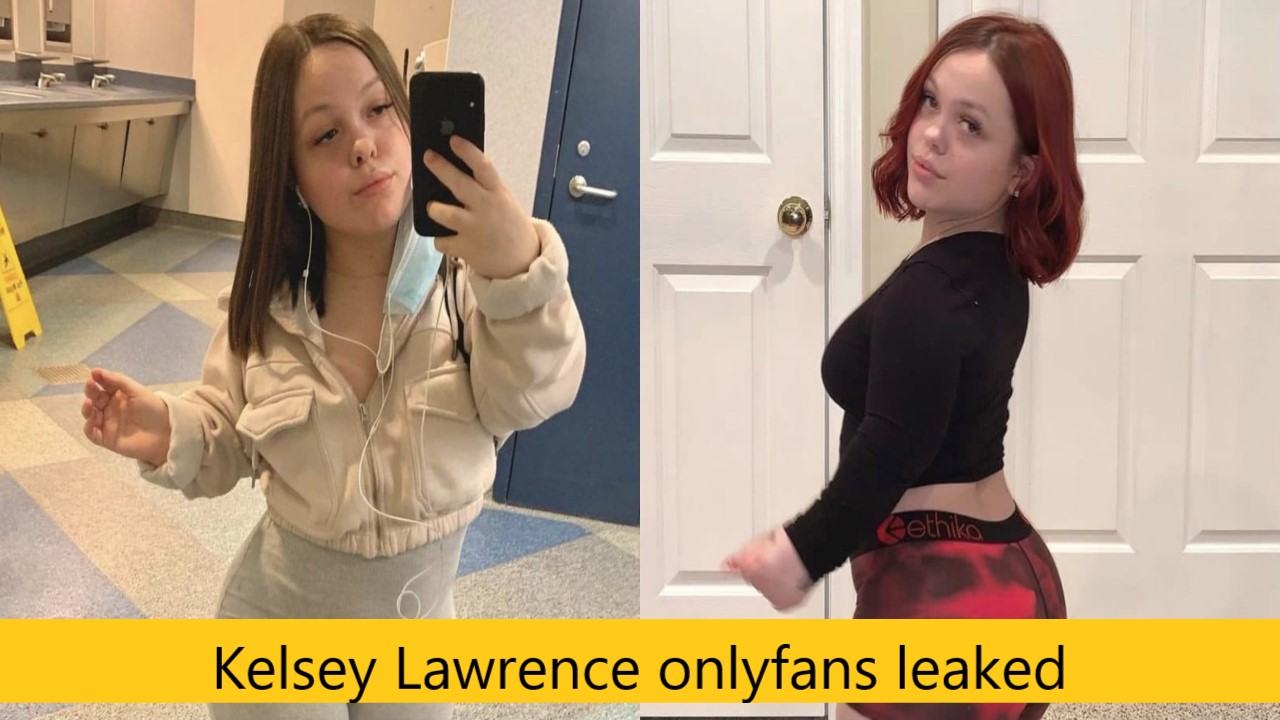Unveiling The Truth: Kelsey Lawrence Leaked Fanbus Video Explained
The unauthorized release of the video sent shockwaves through the online community, raising concerns about privacy, consent, and the ethics of sharing explicit content. As the public grapples with the aftermath of this incident, it's crucial to examine the underlying issues and understand the potential consequences.
At the heart of this controversy lies the question of consent. The video was reportedly taken without Lawrence's knowledge or permission, raising ethical and legal concerns. The incident highlights the importance of respecting individuals' boundaries and obtaining consent before recording or sharing personal content.
The widespread dissemination of the video also underscores the dangers of online privacy breaches. In an era where technology facilitates the rapid spread of information, it's essential to be mindful of the potential risks associated with sharing personal content, especially in digital spaces. By understanding the consequences of our actions online, we can help protect ourselves and others from similar situations.
Kelsey Lawrence Leaked Fanbus Video What Happened
The unauthorized release of the "Kelsey Lawrence Leaked Fanbus Video" has sparked a public outcry, raising important questions about privacy, consent, and the ethics of sharing explicit content. This incident highlights several key aspects that warrant careful consideration:
- Consent: Was the video recorded and shared with Lawrence's knowledge and permission?
- Privacy: How was the video obtained and disseminated without Lawrence's consent?
- Ethics: Is it ethical to share explicit content without the consent of the individuals involved?
- Legal implications: What are the legal consequences of recording and sharing explicit content without consent?
- Impact on Lawrence: How has the leak affected Lawrence's personal and professional life?
- Social media responsibility: What role do social media platforms play in preventing the spread of non-consensual content?
- Online safety: What steps can individuals take to protect themselves from online privacy breaches?
- Consent education: How can we raise awareness about the importance of consent in sexual relationships?
- Victim support: What resources are available to support victims of non-consensual content sharing?
- Policy changes: What policy changes are needed to address the issue of non-consensual content sharing?
These key aspects are interconnected and have far-reaching implications for individuals, society, and the legal system. It is crucial to engage in thoughtful discussions about these issues to promote a culture of respect, consent, and online safety.
Kelsey Lawrence Leaked Fanbus Video: Unraveling the Ethical Enigma
The unauthorized release of the "Kelsey Lawrence Leaked Fanbus Video" has sent shockwaves through the internet, sparking a public outcry and raising fundamental questions about privacy, consent, and the ethics of sharing explicit content.
Did Kelsey Lawrence Consent to the Video's Release?
At the heart of this controversy lies the issue of consent. The video was reportedly taken without Lawrence's knowledge or permission, raising serious ethical and legal concerns. Consent is paramount in any sexual encounter, and its violation undermines the autonomy and dignity of the individual.
What are the Legal Implications of the Leak?
The dissemination of the video without Lawrence's consent may have legal implications. In many jurisdictions, it is illegal to record or share explicit content without the consent of all parties involved. Understanding the legal consequences of such actions is crucial to prevent further harm and protect individuals' rights.
How has the Leak Impacted Lawrence's Life?
The unauthorized release of the video has had a profound impact on Lawrence's personal and professional life. Such incidents can lead to feelings of shame, humiliation, and emotional distress. It is essential to consider the potential consequences of our actions online and the impact they may have on others.
What Role do Social Media Platforms Play?
Social media platforms have a responsibility to prevent the spread of non-consensual content. They must implement robust mechanisms to detect and remove such content, while also providing support to victims. By holding these platforms accountable, we can create a safer online environment for all.
What Can We Do to Prevent Similar Incidents?
To prevent similar incidents from occurring, it is crucial to promote a culture of consent, respect, and online safety. This includes educating individuals about their rights and responsibilities, encouraging dialogue about these issues, and advocating for stricter laws to protect victims of non-consensual content sharing.
The "Kelsey Lawrence Leaked Fanbus Video" incident has ignited a crucial conversation about consent, privacy, and the ethics of sharing explicit content online. The unauthorized release of the video without Lawrence's consent raises fundamental questions about the boundaries of acceptable behavior in the digital age.
Key points that emerged from this incident include the paramount importance of consent in sexual encounters, the potential legal consequences of violating consent, and the impact of such incidents on the victim's life. Social media platforms have a responsibility to prevent the spread of non-consensual content, while individuals must be educated about their rights and responsibilities online.
This incident serves as a stark reminder of the need for ongoing dialogue and action to create a culture of respect, consent, and online safety. By holding perpetrators accountable, supporting victims, and promoting awareness, we can work towards a world where individuals' privacy and autonomy are protected in the digital realm.

Kelsey Lawrence Fanbus video Kelsey Lawrence and Dabb Gasm perform in

Kelsey Lawrence And Dabb Full Video KV

Kelsey Lawrence onlyfans leaked on twitter and reddit kworld trend